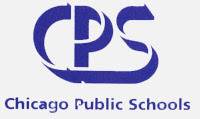Earlier this week, I covered a school board meeting for one of the suburban daily newspapers, and I encountered a woman who had never been to such a session before.
In fact, the woman had just moved to suburban Calumet City a few months earlier, after living her entire life in Chicago where she had come to accept the political culture of the city.
WHAT CAUGHT MY attention about her was her mystification about the fact that the local school board consisted of elected members, while the board of education for the Chicago Public Schools is a government body consisting of mayoral appointees.
“You go to a Chicago school board meeting, and those people act in secret. You don’t have a clue what they did, or why?,” she told me.
My initial reaction was to chuckle, because I happen to know people who think that particular school board (for the local high schools) is overly secretive, or inept, or whatever other hostile terminology their minds can concoct.
But it also popped into my mind again when I read a report by WBEZ-FM radio, which did a story about just how secretive the political culture of the Chicago Public Schools truly is.
MY OWN FIRST-HAND experience in dealing with the Chicago Public Schools as a reporter-type person is about two decades old. I haven’t been to a school board meeting in Chicago in years.
But somehow, I doubt that much has changed. In fact, if the Public Radio report is at all accurate, nothing at all has changed.
Which is why I find it interesting that incoming school board President David Vitale (NOT the incoming superintendent Jean-Claude Brizard, who will wind up being the public “face” of the schools who will get the blame – or praise – for whatever happens with regards to public education in Chicago) is willing to admit there are potential problems with the degree to which the board is “open” about doing “the people’s business.”
“My own view is that we need to be totally transparent. My bias is that the public has a right to be engaged, and I expect to follow that bias,” Vitale told WBEZ.
PERSONALLY, MY RECOLLECTIONS of dealing with Chicago Public Schools officials is of having an administration and bureaucratic structure to support it that is so large it makes the getting of information about schools activity overly-complex.
Too many people don’t know what their colleagues are doing, and often only know such a small piece of information that they don’t fully appreciate how it fits into the “big” picture.
All that means is that I believe the problem in getting a clear understanding of what is happening is because of the “ignorance” of the public officials, not any “corrupt” or “lying” nature. And when I say “ignorance,” I don’t necessarily mean they’re stupid. Just uninformed.
It is why I often joke that the act of being a news reporter covering a story is similar to putting together a jigsaw puzzle – only someone snatched away the box cover so you don’t know exactly what it’s supposed to look like when you’re done and someone may have snatched a few pieces of the puzzle when you weren’t looking.
IF THEY’RE REALLY in a nasty mood, they may slip in a couple of pieces from a different puzzle, just to confuse you.
Not that I expect the whole world to cater to my work needs (the few people who are willing to make an effort are usually the ones who are just helpful to all people in general). But when some people want to rant about the general incompetence of newsgathering organizations, perhaps it ought to be kept in mind that this is one of the factors at stake that can result in news stories with gaping holes of information or trivial tidbits or pompous rhetoric emanating from the mouths of public officials who are trying to pass themselves off as informed public servants.
And this attitude is not restricted to the Chicago Public Schools, or that one suburban school district I covered earlier this week, or any one government panel. It happens all too often at all levels of government.
So I’m curious to see how literally Vitale’s words are taken to be transparent.
BECAUSE THERE’S ALWAYS the chance that “transparency” might not tell us anything significant about the way our public officials in the school system are handling things.
It might actually just inform us about how little they truly understand what they are doing with the dollars they derive from our local property taxes.
While that kind of information is helpful for us to know on a certain level (so that perhaps we might take seriously the idea of finding better-qualified people come the next election cycle, rather than just accepting the same old people in those posts), it doesn’t help improve the level of public service.
-30-

No comments:
Post a Comment